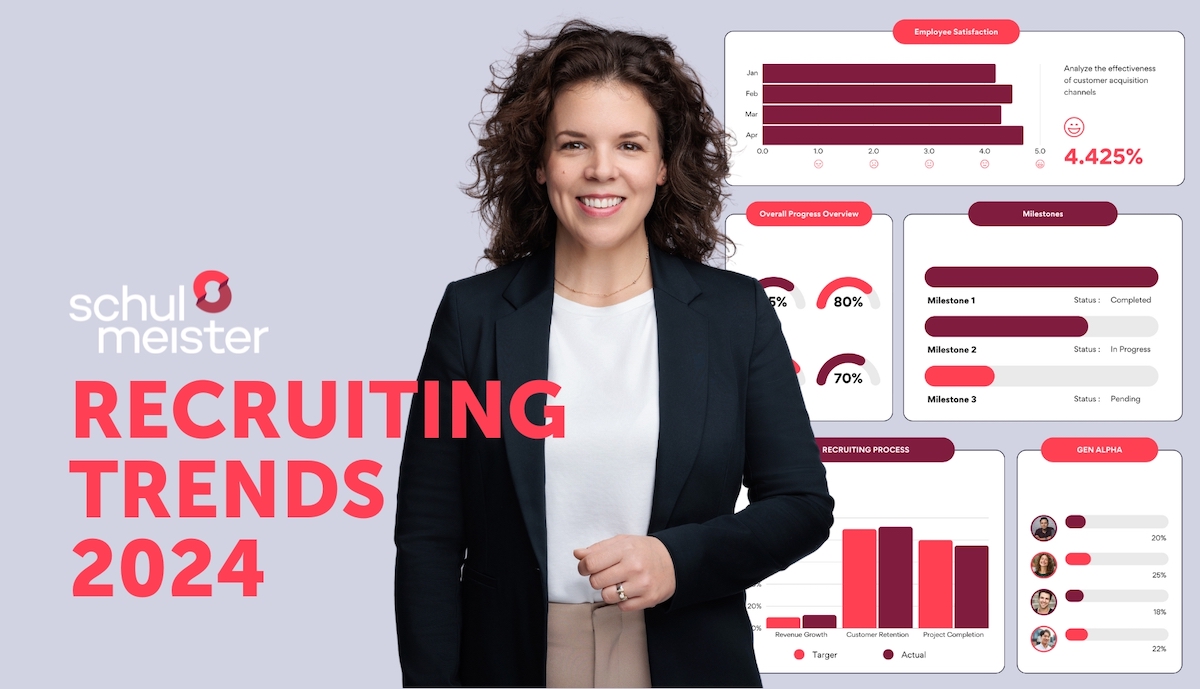Who is the Generation Alpha?
Born from 2010 onwards, this generation is only just taking its first steps in the world of education and will enter the working world in the upcoming years, primarily as apprentices and interns. Generation Alpha is growing up in an era of digitalisation and global networking, which will significantly shape their expectations, needs and working methods. In a study by MCCrindle Research on Gen Alpha, the parents of this generation were asked about the skills of their children. At 60%, digital skills were the top priority in the survey.
A falling birth rate and rising retirement figures mean that there is less labour available. At the same time, a higher level of education means that talented people are entering the labour market at a later point, further intensifying the shortage of skilled workers. Companies must therefore address Gen Alpha with targeted measures (source: hokify whitepaper on Generation Alpha).
Digital natives with ecological and social awareness
Unlike previous generations, who have had to adapt to digital technologies over the course of their lives, Alphas have grown up as true digital natives. They have learned how to use modern technologies such as smartphones, voice assistants etc. at an early age, which means that they have an intuitive connection to technology and digital platforms. In the future, digital workplaces and flexible working models such as remote and hybrid working will therefore no longer just be an attractive benefit, but an essential component in the battle for the best talents of this generation (source: hokify whitepaper on Generation Alpha).
At the same time, studies show that Generation Alpha has a strong awareness of environmental and social issues. Companies that integrate sustainability and social responsibility into their corporate values will therefore be more attractive employers for the next generation. This reflects a shift in labour market values, where meaningfulness and contributing to the good of society and the planet are becoming increasingly important (source: hokify whitepaper on Generation Alpha).
Flexibility and work-life balance
Expectations of flexibility in the working life have changed significantly in recent years, and Generation Alpha will continue to drive this trend. In the PwC study "The ideal employer", the expectations of Generation Z, the predecessor generation of the Alphas, towards employers were analysed. Flexibility in terms of working hours and locations as well as a good work-life balance are among the top priorities. It can be assumed that these expectations will become even more important among Generation Alpha, which should prompt companies not only to enable flexible working models, but to actively promote them.
Lifelong learning and adaptability
The rapid development of technology and the constant change in the world of work require Generation Alpha to continuously develop and learn new skills. Experts talk about a hyper-flexible, hyper-digital and hyper-individualised generation. Companies that invest in the professional development of their employees and promote a culture of lifelong learning will be particularly attractive to this generation. Providing resources for professional development and career growth will not only facilitate recruitment but will also help to retain talented employees in the long run (source: McCrindle Research).
Diversity and inclusion
Generation Alpha not only talks about diversity, but also lives it. The previous mentioned study by McCrindle Research indicates that inclusion and diversity are core values for this generation, which is partly due to the global network of the Alphas. Companies that promote an inclusive culture and value diversity in all aspects of their organisation will therefore stand out as attractive employers. It's not just about taking diversity into account at the recruitment level, but also about creating a working environment in which all employees feel valued and included.
Crises as the new normal
The Alphas are often referred to as coronavirus children. Although some of them were born before the pandemic, many had their first experiences in nurseries and schools under the unusual conditions of lockdown and social distancing. They are growing up with climate catastrophes and changes. In addition, their childhood is characterised by news streams about political disturbances and wars. Their perception of normality therefore differs considerably from previous generations (source: WDR report on Generation Alpha).






